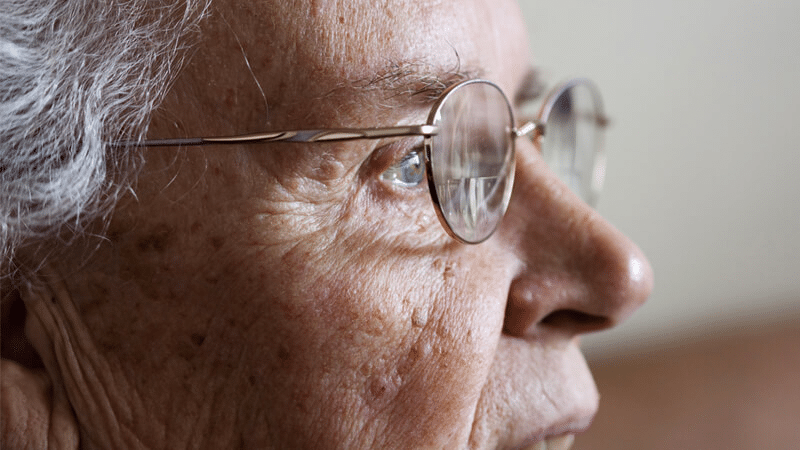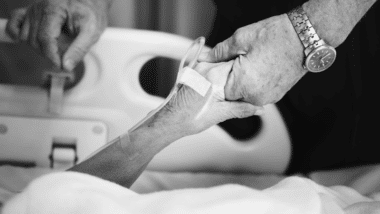The House of Commons Health and Social Care Select Committee has starkly outlined the many dangers of legalising assisted suicide but failed to oppose a change in the law.
The Committee has been examining evidence from jurisdictions that have legalised the practice, as well as looking at palliative care in the UK, and released its findings yesterday.
Care Not Killing, the UK’s leading anti-assisted suicide group, welcomed the detail of the report, which outlined many dangers of legalisation, but called MPs’ refusal to firmly oppose a change in the law “disappointing”.
‘Clear evidence’
Dr Gordon Macdonald, the organisation’s Chief Executive, said: “The committee recognises the huge problems in patients accessing good quality palliative care.
“It heard about the struggle many face with getting the right social care and how disabled people, the vulnerable and elderly find it tough to pay their bills or suffer from isolation and feel like they have become a burden.
“Indeed, one expert told the Committee about the clear evidence of the pressure on people who were seen as no longer ‘a useful member of society’ and that this pressure could be nonintentional.”
He said this had been recorded in Oregon, where around half of those ending their lives under the law cite being a burden on family, friends or caregivers as a reason, and in Canada, where around 2,250 people cited loneliness as a reason for allowing the state to kill them.
Failure
But Dr Macdonald said he was “disappointed” it had failed to pick up that “countries which have changed the law have celebrated savings they have made, or failed to increase spending in palliative care at a similar rate to neighbouring jurisdictions, or that changing the law is increasingly linked to an increase in suicides rates in the general population, based on extensive data from the US and Europe”.
He concluded: “At a time when we have seen how fragile our health care system is, how underfunding puts pressure on services, accessing specific treatments and when the UK’s amazing hospice movement faces a £100 million funding crisis, MPs could have decided to firmly close the door on assisted suicide and euthanasia and say the current law which protects everyone, regardless of whether they are young or old, able bodied or disabled should remain.
“They failed.”
Exposing propaganda
The report’s omission of the issue of killing people to save money was also noted by Dr Kevin Yuill, Director of Humanists Against Assisted Suicide and Euthanasia.
In an article for Parliament News he wrote: “They might have included the notorious 2020 Canadian government report that showed the savings of euthanasia of between 15 and some 54 thousand dollars per patient.”
But he welcomed its ‘inadvertent’ exposure of the campaign tactics of Dignity in Dying and other pro-assisted groups.
He accused them of “emotionally clubbing people over the head with terrible stories until they succumb to the terror of a bad death or to the appeals of those who are terminally ill”.
Media misrepresentation
Sections of the media have come in for strong criticism for misrepresenting the report’s conclusions on palliative care.
The BBC reported: “Despite concern a change in the law would lead to poorer support at the end of life, the committee’s report said, if anything, it was linked to improvement in the countries to have taken the step, with evidence showing the alterations resulted in extra investment in palliative care.”
Posting on X, the Chair of the All Party Parliamentary Group for Dying Well, Danny Kruger MP, said: “Why are media reporting the opposite of what the report says? Ofc end of life care funding is increasing everywhere. Populations are aging. But euthanasia eats up the increase.”
He highlighted that the Committee heard that palliative care resources in Canada includes funding spent on assisted suicide, and that “funding is disproportionately consumed” by assisted suicide, while patients who did not request help to kill themselves “had reduced access to palliative care”.
‘No support’
Kruger also posted:
Today’s report is a major set back for the Assisted Suicide campaign:
No support for a vote in Parliament
Impossible to assess a patient’s capacity to choose
Impossible to safeguard the vulnerable
Major probs with Oregon and Canada, where euthanasia eats up extra funding
— Danny Kruger (@danny__kruger) February 29, 2024
He concluded: “Please can this be an end to this distracting campaign and can we all focus on what we agree on: the desperate need for properly-funded, well-organised end of life care for all?”
Bake Off’s Prue fears she is helping to unleash assisted suicide ‘nightmare’
Poll on assisted suicide reveals ‘stark judgements’ about vulnerable


